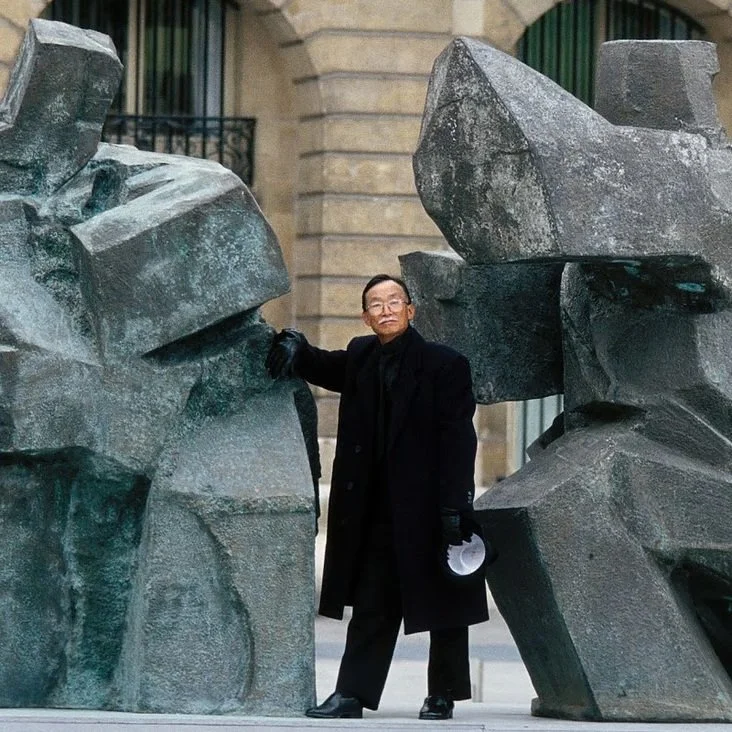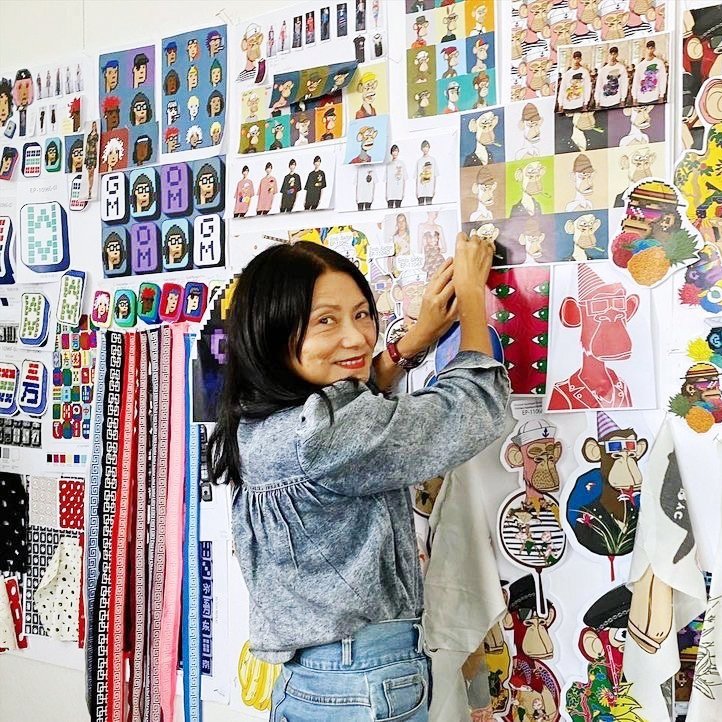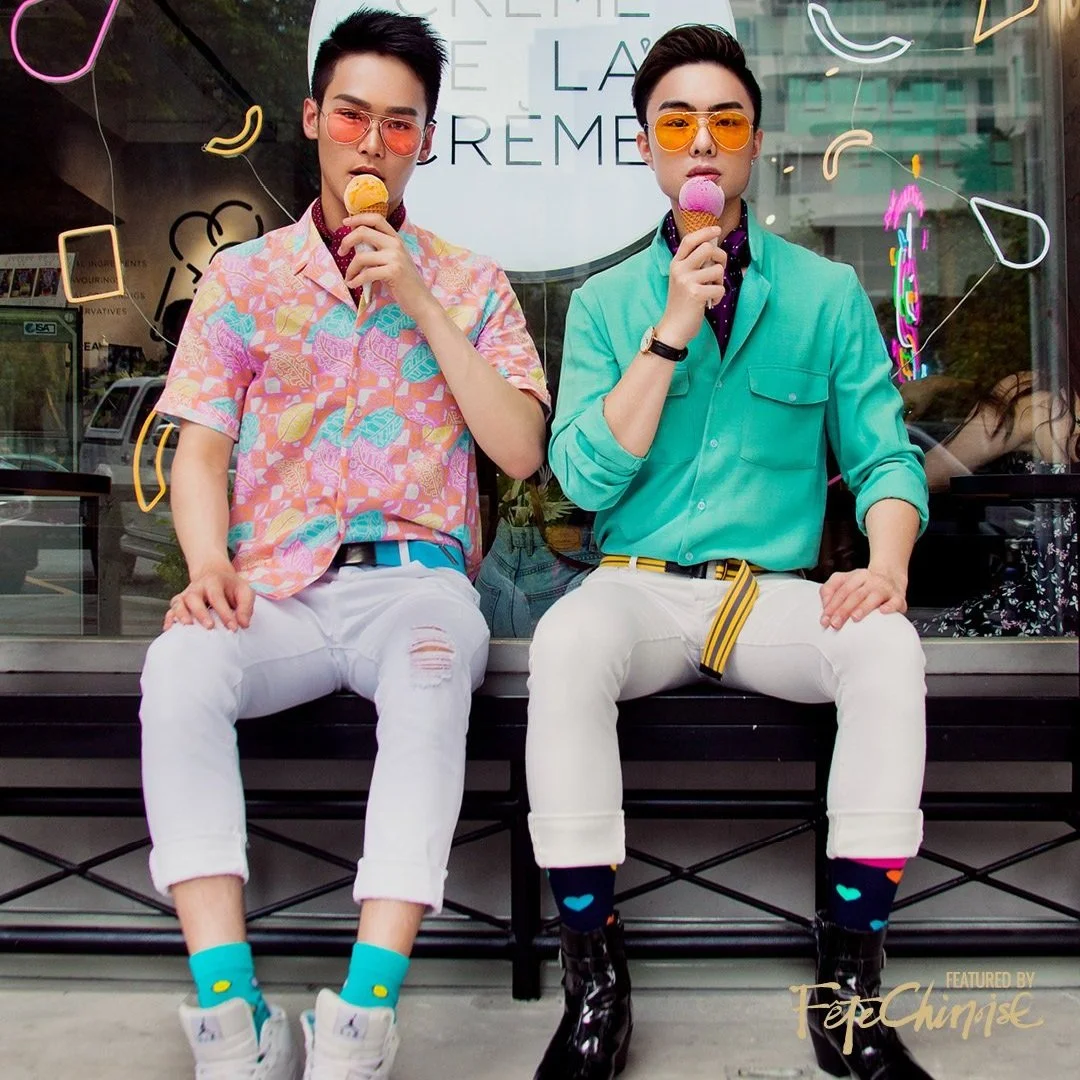DOUGLAS YOUNG: Hong Kong’s Cultural Dreamer & Founder of G.O.D. (Goods of Desire) 楊志超:香港文化夢想家及《住好啲》創辦人
Interviewed and Written by Deborah Lau-Yu
Translated by Mung Ting Chung
image: G.o.D. Website
在一個物質主義盛行、漠視文化價值的世界裡,有一名設計師以他的成長地香港為繆思,成功地將迷人的地道文化與本土精神轉化為他公司的基石及創作靈感。楊志超,香港人熟識的名字,著名室內設計及傢具設計師,其攝力早已超於當地,曾得到名電視節目主持人安東尼 ∙ 波登(Anthony Bourdain)被邀請在《未知之旅 Parts Unknown》亮相,同時也在新加坡的大學作客席講師研討他對文化的熱情,他為這一代人記取香港一直在變動中的身份作出了貢獻。楊志超跟劉玉德在1996年共同創立了「住好啲」,志在建立一個屬於香港的品牌,該品牌既要往前看,也為自己的文化根源感到自豪。「住好啲」的零售品包括富有香港本土特色的家具及生活用品、和融入當代中國風格的飾物,一切產品都是由楊志超帶領一眾跨媒界的設計團隊自家設計。
image: G.o.d. instagram
Born in 1965 in Hong Kong, Douglas Young attended local schools until age 14, before moving to the UK for boarding school where he studied architecture at Sheffield University and was a part of the Architectural Association in UK. By the time he returned to his native city, half of his life had been spent equally in the UK and Hong Kong, giving him a bicultural perspective on almost everything. Young enjoys British culture and humour and most locals and close family friends refer to him as “Gwai Jai” which means “westerner.” His company, G.O.D. — an acronym for Goods of Desire and homonym for the Chinese words meaning, “to live better,” reflects his dual cultural identity, with which looks at Hong Kong through a foreign pair of eyes while also looking at the outside world through the lens of a Hong Konger. Young admits that “those who best appreciate what we do are usually people who understand both (or multiple) cultures and languages. Many local HK people may miss some of the nuances in the humour that is embedded into our products. Having not lived overseas, you may not be able to fully appreciate what it is. Hong Kong is moving towards being an international city and is losing native history and culture.” Young is doing part in contributing to that culture, before it’s all gone.
出生於1965年的香港,楊志超在當地上學直到十四歲。隨後他搬到英國入讀國際學校,然後在雪菲爾大學就讀建築系。當他回到自己的出生地時,他待在英國的時間已經跟他在香港的一樣久了,他看待世界的眼光自此總是從一個雙重文化的角度出發。楊志超欣賞英國文化和英式幽默,很多當地人還有他的親戚朋友都叫他「鬼仔」,意思是「老外」。他的公司「住好啲G.O.D.」,英文名字是 Goods of Desire 的縮寫,中文名字在粵語裡有「住得好一點」的意思。這命名反映了他的雙重文化身份,既會以外來的眼光看香港,也會用香港人的眼光看外面的世界。楊志超坦承:「那些最懂得欣賞我們的人通常是了解兩種(或多種)文化和語言的人。很多本地的香港人可能察覺不到我們產品中暗藏的幽默。如果沒有在海外生活過,你或許未必能明白當中暗藏意思。香港在轉變成國際大城市的同時,正在失去她的本土歷史與文化。」楊志超做的正是在這種文化消逝之前,將其捕捉和保存。
ON CITY, MODERNIZATION & LOSS OF IDENTITY
城市、傳統、現代、失落
Douglas sees beyond the immediate reality to delve into the meaning behind a city – often referred to as the text of a city. He shares: “Through the years, Hong Kong has become more westernized and international. Prior, it was less prominent until the end of the 90s, before becoming a major international city.” In his opinion, modernizing something is good but being internationalized is a different question — he feels it is possible to modernize while keeping tradition. He remembers when he was growing up, food and television were locally made, which is no longer the norm. The pop stars of the 80’s and before have no equivalents today and instead, “we’re listening to Korean music and western pop, and the movie industry is suffering too,” Douglas observes. The same lack of locale happens in architecture too: many older buildings are being turned into glass blocks. Because it happens slowly and gradually, people don’t notice until years later when they look up and see a completely unrecognizable neighbourhood.
楊志超能夠看穿現實的表面,深探一座城市背後的意義 — 也就是以城市作為文本。「這些年來,香港變得越來越西化和國際化。」在他看來,現代化是好的,但國際化則不然 — 他認為可以在現代化的同時保存其傳統。他記得在他成長的過程中,食物和電視都是本地製作的,可現在都不是了。據楊志超的觀察,八十年代或更早的香港流行明星曾經盛極一時,但現在已經後繼無人:「我們都在聽韓國和西方音樂,而電影業也正在萎縮中。」建築界也是如此:眾多的舊建築被玻璃大樓取代。而因為一切都是緩慢而漸次地發生,人們直到近年才發現,當他們抬頭時,自己曾經熟悉的街道已經陌生得無法辨認。
Douglas goes on passionately with more examples of a loss of tradition, such as in the way people dress. “People used to go school in the ‘meen nap’ silks and if one were to wear one today, people would comment that you’re old fashioned, alluding that the product is subpar in style, relevance, and perhaps even value to what is typically on the market. But in reality, the silk jacket is so much nicer, warmer, and generally a better product.” He suggests that perhaps because Hong Kong was a British colony, citizens are taught to see anything overseas as being superior and consequently, what is local is considered inferior. Therefore, the local culture is diminished and devalued, which is a sad way of losing your own culture.
楊志超對傳統的失落舉出了更多的例子,就像衣著。「人們曾經穿絲棉衲去上學,但如果今天有人這樣穿,別人會說你過時、老土 — 似乎在說那棉衲無論是款式、恰當性、甚至在價值上都跟現代脫節。但實際上,絲質的外套更好、更暖,整體而言是更優秀的東西。」他認為這也許跟香港曾經是殖民地的歷史有關,市民被灌輸了舶來貨高人一等的觀念,而本地的都次一等。因此,本土文化被貶低,繼而息微,這種文化消亡的情形實在是可嘆。
“Traditions need to be updated now and then in order to stay alive. 傳統文化習俗得以承傳必需不斷更新來保存其活力。”
Douglas captures Hong Kong in one phrase: “City of Contrasts.” There are old buildings right next to really modern buildings; Chinese culture right next to western culture. People don’t realize how ironic things are when it comes to cultural clashes, from the way they dress and how food is combined; even Japanese combinations found in Hong Kong can be strange and it might be because HK people are very practical, therefore they mix and match whatever is practical without thinking and it can create craziness and contrast that can end up being brilliant.
楊志超用一句話形容香港:「對立之城。」舊建築就在摩登大樓旁邊,中國文化也跟西方文化並置。人們根本沒有意識到從穿衣和食物組合的方式來看,這些文化碰撞有多特別。在香港,時時可以找到混合了日文的地方,這原本是奇怪的,但也許因為香港人本就非常實際,因此在他們拼湊組合之前,可能都沒有細想就出於實際而這樣做了。最後產生出瘋狂的、充滿對立的,但同時也非常精彩的事物。
A big question in Hong Kong is whether modern local designers are doing anything to modernize traditions. Traditions need to be updated now and then in order to stay alive. That’s why, in Young’s opinion, Shakespeare’s works have lasted so many centuries — every generation adds something to it. Every generation needs to do something about it. He’s doing his part through his brand of G.O.D. to keep the genuine and generational story of Hong Kong afloat for the next generation.
在香港,一個大問題是:當代的本地設計師是否有盡力將傳統現代化?傳統文化習俗得以承傳必需不斷更新來保存其活力。在楊志超看來,這正是沙士比亞的作品得以流傳千古的原因 — 每一代人都有加新元素進去,每一代人都需要做點事。通過他的品牌「住好啲」,楊志超盡他所能,把香港最真實的一面傳給後世。
The G.O.D. Brand「住好啲」作為一個品牌
G.O.D. began by accident. It was a personal project that grew in popularity. The very first product was furniture, but the most memorable product is what is known as The YAU MA TEI print. When the government began removing old buildings with illegal extensions for their laundry and other uses, Douglas took a picture and printed in onto various products for fun, but it quickly became a bestseller.
「住好啲」的創立源自一個意外。那最初不過是一個個人的計劃,卻意外地因為太受歡迎而日益壯大。他們第一件作品是傢俱,但他們最令人記憶猶新的產品卻是「油麻地圖案」。當政府開始拆除舊房子作為洗衣房或其他用途的非法僭建物,楊志超拍了照,為了好玩而印了在各式產品上,結果卻大受歡迎。
Today, Douglas spends his days working intimately with his team. He sees his design process as the aggregation of thoughts to create something much more meaningful. Douglas likes working with others as it helps to get a balanced and more objective view. It is a privilege to work through the ideas by talking or by creating prototypes, by making things, drawing things, and seeing things being built. This is what goes on behind the scenes at G.O.D.
時至今日,楊志超和他的團隊仍舊合作無間。他把創作過稱為思想的結合,一同創作出更有意義的作品。楊志超喜歡跟他人合作,因為這可以讓他得到一個較為平衡而客觀的看法。他很享受一個想法在討論、創造原型、製作、繪製中一點點地被呈現出來的過程。這些都是「住好啲」工作幕後的情形。
His dream is to make a more immersive environment for his customers — maybe a hotel or larger space where everyone can experience modern Hong Kong lifestyle, music, and entertainment. It would be fantastic for both the maker and its future guests.
他的夢想是為他的顧客營造出一個更能置身其中的環境 — 也許是一間酒店,或是一個更大的空間。在那裡,人們可以感受當代香港的生活方式、音樂、娛樂 — 一種全面的體驗。這對於創作者和客人而言都是同樣精彩的。
What is your legacy? 愛惜本土文化遺產
Douglas has a mission to revive, keep, and build the Hong Kong identity and help citizens feel pride in themselves and their culture. Hong Kong language and culture are being eroded in his opinion — Cantonese is being turned into Putonghua (Mandarin) by schools, media and government. In some schools, when you learn English, they also teach Putonghua, although the vast majority of Hong Kong residents use Cantonese as their main language of communication. Hong Kong is part of China now, and it is understandable that the country wants to integrate the city more. People may not notice it on a day-to-day basis aside from small inconveniences, but it’s becoming perceptible. Over a period of time, it will change depending on the people. The only way to preserve culture is not to force people to keep it, but make it fun and attractive so that more people want to keep it and pass it on and preserve it.
楊志超對自己的期許是復興、保存,以及建立香港身份,讓香港人對自己的文化感到驕傲。香港的語言和文化正在被侵蝕 — 繁體字和廣東話在學校、媒體和政府裡被普通話所取代,儘管大部分的香港人還是用它作主要的溝通語言,廣東話基本上已經不再有人教了。香港現在是中國的一部分了,國家打算讓這城市更為融合也是可以理解的。除了一點點不方便,人們在日常生活中也許還沒有察覺,但其實類似的變化已經越來越明顯了。隨著時間的流逝,文化習慣會隨著人們而繼續改變。保存文化的唯一方法不是強迫人們去保留它,而是讓它變得很有趣,使人想要保存它並且流傳下去。
Is Canada on the horizon? 加拿大也在其版圖內嗎?
In whether or not Young would consider bringing his brand to Canada, to Vancouver or Toronto, the future is unknown. He has been in Singapore, Taiwan and Mainland China and finds that at times the more shops he has, the less enjoyment he has. Stores outside of Hong Kong have demanded him to attend many business meetings abroad. He loves being in the studio to experiment with partners. Satisfaction for Young comes purely from being creative. However, he’s not ruling it out! If there are partners who can think like him, perhaps he would consider it, as long as it allows him to design. In the meantime, he’s already grateful to be living his dream as a creative.
至於楊志超是否打算把業務帶到加拿大,溫哥華或多倫多,這一切都尚未可知。他曾到過新加坡、台灣和中國大陸,然後卻發現有時候他的店面越多,他所得到的樂趣就越少。香港以外的分店曾經要求他更多地參與海外的商業會議,而他更享受在工作室跟生意夥伴在一起。對於楊志超來說,滿足感來源於保持純粹的創意。但是,他也沒有把話說死。如果有生意伙伴覺得能跟他在想法上合得來,也許他就會考慮,只要那讓他繼續有機會做本土文化設計。這一刻,楊志超道可以活在自己的創意國度、實現夢想,無比感恩。
Sponsored by Ferris Wheel Press.






















